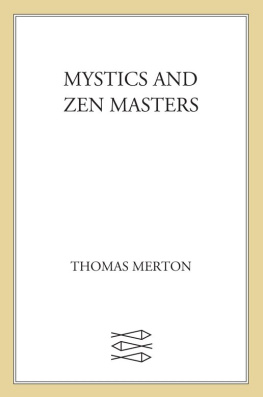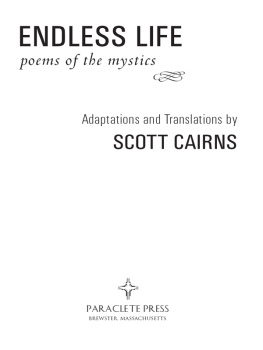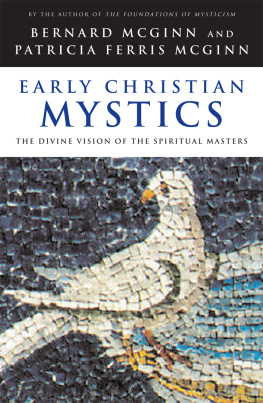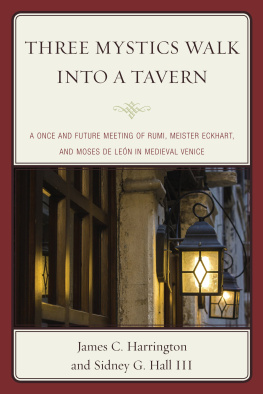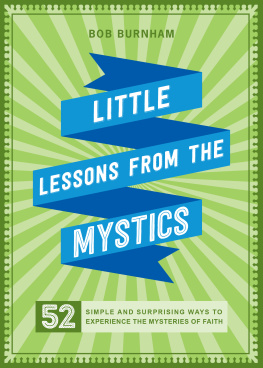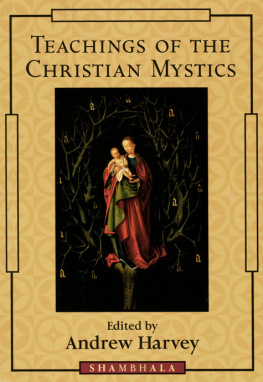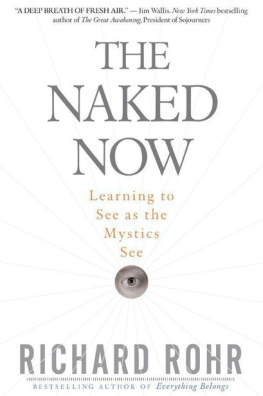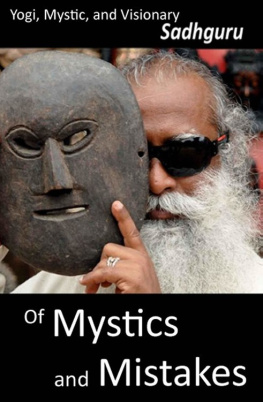E VEN M YSTICS
H AVE B ILLS
TO P AY
Balancing
a Spiritual Life
and Earthly Living


I ntroduction
The work ethic used to work. It served past generations well. They made the ends meet. Work hard and youll get ahead. Effort alone prospered many families, but not anymore. People who once prospered are now homeless. More and more children are living below the poverty level. Industries that once supported successive generations are shutting down. Throughout most of the twentieth century, one person in the household worked and provided for the needs of the family. Now both husband and wife often work to ensure a basic standard of living. In election years, the incumbent politicians used to be able to prop up the economy so it looked good by election day, but there are times when it seems they are not able to perform the magic anymore.
This is not the time to redouble our efforts and to do what we have always done a little better. The old methods will not work. We are being called to a new way of life. Humanity has only scratched the surface of prosperous living. Now is the time to dig deeper, not for precious metals, but for the treasure that is within us. The issue is not a continuous supply of bread, but whether we will discover, Man shall not live by bread alone (Mt. 4:4). This is the discovery made by the mystics of the world. They found that the food which nourishes our souls will also provide for our bodies and other human needs. Earthly food only feeds the body, but the fruit of Spirit animates body and soul.
Because these seekers of the Infinite were so completely committed to God, there is a tendency to think that they had forsaken the world. The Truth is they did not really turn from the world because even mystics have bills to pay; they turned toward God.
There are many reasons to admire and emulate the mystics. Perhaps the most compelling reason is that they found balance. By seeking the kingdom, they learned how to put earthly matters in perspective. By putting God first, they assigned the world its proper place.
Mystics are in the world, but not of it. Their security and sense of identity are not rooted in the earth, although they eat the grains and fruit of the harvest. They drink from the spring of living water Jesus revealed to the Samaritan woman, and they also drink the water for which all people thirst again and again.
Seeking God is difficult. Every mystic retreats from the world in order to gain perspective and to receive insights, revelations, and a new vision. Most of us will not consistently retreat from the world, but we have the same inner yearning to know our Creator and to let the Spirit of God do Its sacred work in and through and as us. We have families to support and things to accomplish that we value and feel are important. However, I believe we, too, can find the balance that many of the mystics found. Together we are joined in the sacred quest of the Infinite and in the fact that we have bills to pay. This is the common ground we tread. Spirit and Earth are intertwined with one another. Let us not consider the quest sacred and the paying of bills mundane and of little consequence. Let us render unto God the things that are Gods and also live responsibly by paying our bills.
We feel the weight of worldly matters, but we also hear the call to come up higher. Let us respond not by living apart and isolating ourselves from the human family and the world, but by seeing earthly matters from a higher point of view. In this way, we will not forsake the world; we will assign it its proper place.
This is a grand undertaking. We are going to become monks of the city. Like the mystics of old, we will give ourselves to God. We will also look and act like the typical man or woman, but our values and the way we live will provide hints of a higher calling.
Let us tell few people what we believe. Instead, let us quietly pursue our relationship with the Presence. With diligence and with courage, let us put to the test the spiritual principles that promise true security and well-being. And then if individuals ask us about our way of life, it will not be because of what we have said; it will be because of what they have observed us doing.
A new life awaits usone filled with security and well-being. Our watchword is balance. We are rich in Spirit, and our needs are met without making them the reason for our existence. God is at the center of our lives, and from this center, a perfect circle is drawn that does not forsake the world. Within this circle, all is sacred and a new vision is born which sees that even in the winter the fields are already white for harvest (Jn. 4:35).
S ECTION O NE
The Foundation
Everything that stands has a foundation. A life of security and well-being is lived according to certain truths and principles. Like the load-bearing pillars of a great temple, they come first. Their strength allows the rest of the temple to be built, and it is their hidden presence in the completed temple that shelters those who dwell therein.
The first seven chapters of Even Mystics Have Bills to Pay are the foundation pillars of a prosperous life. Many of the principles will be familiar. They are like old friends. Easily we embrace them and acknowledge their worth. Other ideas will be new. In some instances, we will immediately see that they are necessary for the new life we are building. However, some of the principles may seem to contradict truths we have held dear. Let us not discount what appears new or strange. The ideals lived by the mystics were often not those lived by most of humanity. Persist, raise up the pillars, and the temple that is destined to be your new life will rise as well.
C HAPTER
1
But Ive Got Needs!
When our son Ben was young and struggling to learn the importance of saving money, he ran out of funds at the same time he found a video game he thought he had to have. Ben asked Nancy and me for the money to buy the game. We declined his request, and he cried out: But Ive got needs. Ive got needs!
This is the cry of nearly every human being. Ive got needs. Understandably, our focus has been filling these needs. Long ago in human history, our survival depended upon meeting the needs of shelter, food, and water. Members of our human family still struggle with these necessities, but others have needs that they consider to be nearly as essential. The perceived needs may not determine our survival, but they affect our quality of life and the way we see ourselvessuccessful or unsuccessful. There is much at stake, so we spend many hours trying to build the resources necessary for our physical survival, security, self-esteem, and enjoyment.
We think we begin the journey to prosperous living when we answer the worlds call to get a good jobwith benefits. This, we are told, requires an education or specialized training, so schooling comes next. Finally, we are employed, so we can receive societys current medium of exchangemoney. With enough coin and currency, the ends meet.
What a tragic story. It is more fable than Truth. Many of us are exhausted and disillusioned because we have tried to bring the fable to life. When we become characters in this story, we do not get ahead: we fall behind. This is natural when our focus and lifes direction are trying to get what we do not have.


